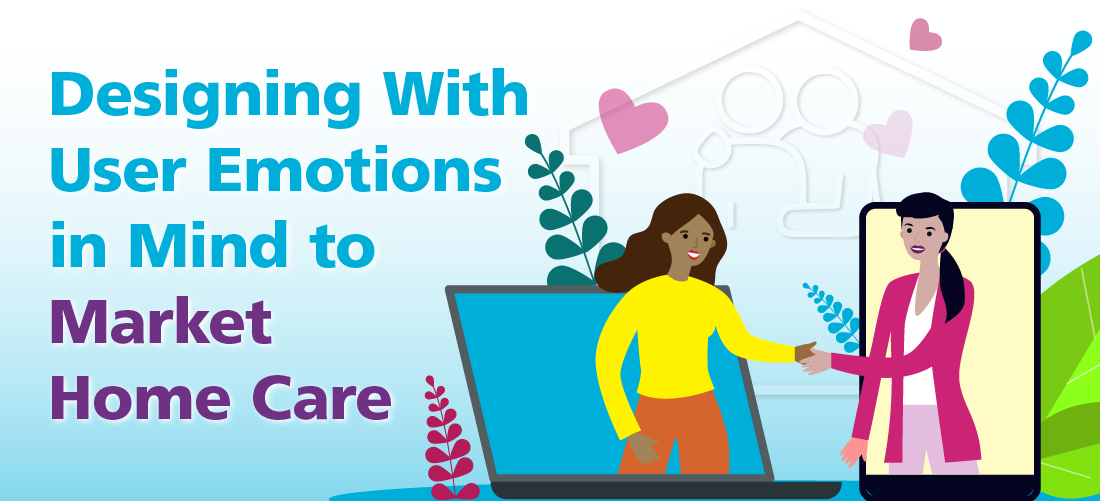
Searching for home care for aging parents or an older loved one can be an emotional and taxing undertaking. Individuals often become aware that a family member requires the help of a home care agency or an in‑home caregiver after a trip to the hospital or a chronic health diagnosis, which can add stress, anxiety, and feelings of being overwhelmed.
When encountering a website that doesn’t follow intuitive navigation, that’s cluttered or hard to read, or that doesn’t meet accessibility standards, these feelings can escalate into user frustrations and cause potential clients to abandon your site before finding the information they need.
To prevent this from happening, there are a few key design principles to keep in mind when designing an agency website centered around in-home marketing while also considering the emotional state of the user:
- Allow Users to Control Text Size: There’s nothing more frustrating than trying to read text that is too small on a digital device. While most devices allow users to customize accessibility settings to their own specifications, these often require an individual to open and locate the correct controls on their device. For those users who don’t want to take the extra time to do this, text that is too small becomes a challenge when trying to find information needed for decision-making. Allowing a user to adjust text size on your website with simple controls that are highly visible and easy to use empowers your users to locate important information.
- Reducing Cognitive Load: When finding home care for a loved one, there are several things a user may ask: What types of services will my loved one need? How much will services cost? How do I know if my loved one needs full-time care? Balancing the answers to these questions may cause some individuals to feel perplexed, which is why it’s important to reduce the amount of processing power a user needs to understand the content on your site. A few simple ways to reduce cognitive load are: avoid visual clutter, such as unnecessary images or redundant links; follow common design patterns and trends a user may understand about home care agency websites (e.g., consider what information and interactions users may expect to find on your website); and find ways to incorporate visual elements that can help further explain important information, such as infographics or illustrations.
- Make Things Easy to Click or Tap: Along with making it easier to control text size, links and buttons should be easy for users to see and click, no matter what type of device they are using. For mobile users with limited dexterity or low vision, this is especially important as embedded links may require a more precise tap versus the amount of space afforded by a larger button. While increasing text size can assist with this, consider how links that are imperative to a home care searcher’s journey can be emphasized or enlarged for increased visibility and ease of use. This can help prevent any interruptions while the user navigates between pages and different types of information.
- Design for Trust: Each interaction that a potential client has with your website is an opportunity to gain their trust. Conversely, each time a website behaves differently than a user may expect can have negative consequences that can break trust. It’s crucial to regularly perform website audits to ensure that your content is up to date, that no broken or duplicate links exist, and to make sure your site meets current accessibility best practices.
While designing for a home care consumer audience requires a thoughtful design process that considers the emotional state of users, it’s also a great opportunity for agencies to market home care services they know will benefit aging adults and their families. Working with a digital design expert and UX specialist like corecubed, can help ensure that your agency has a compelling and intuitive website design that represents your brand in the best way to help build trust with potential clients. Want to know how to sell home health care services with the client in mind? Contact our in-home marketing and design experts to learn how we can help your digital presence and home care website.
